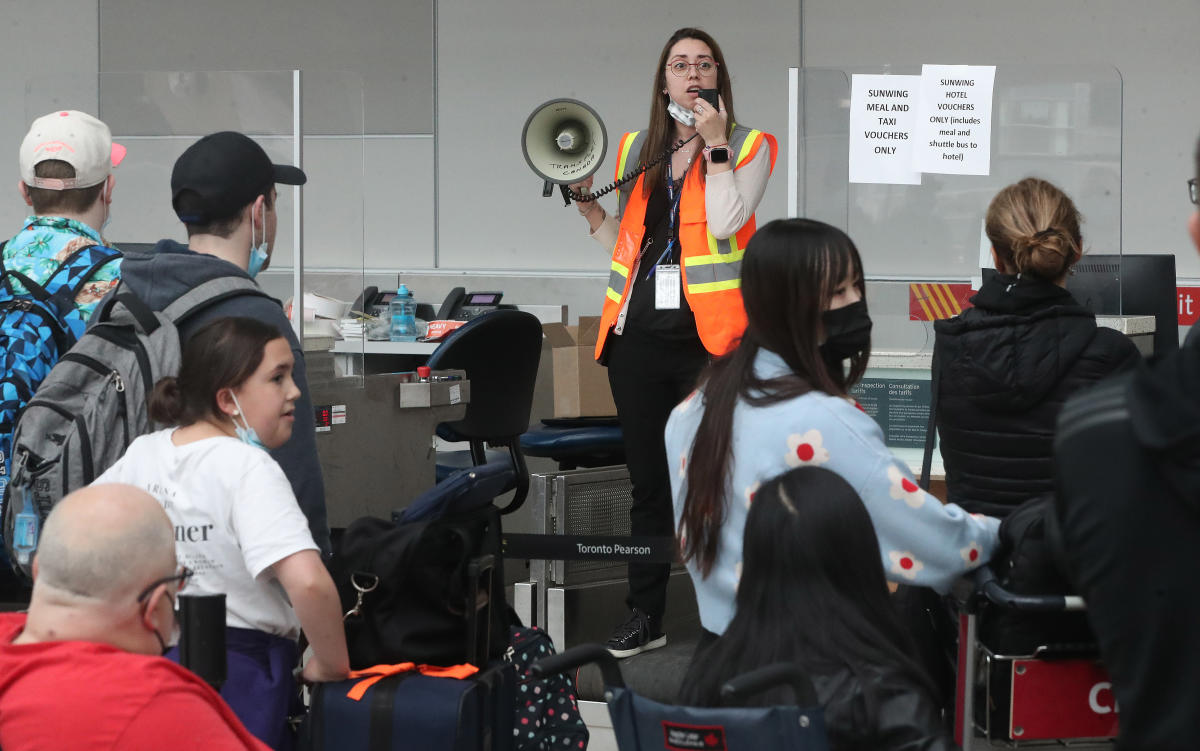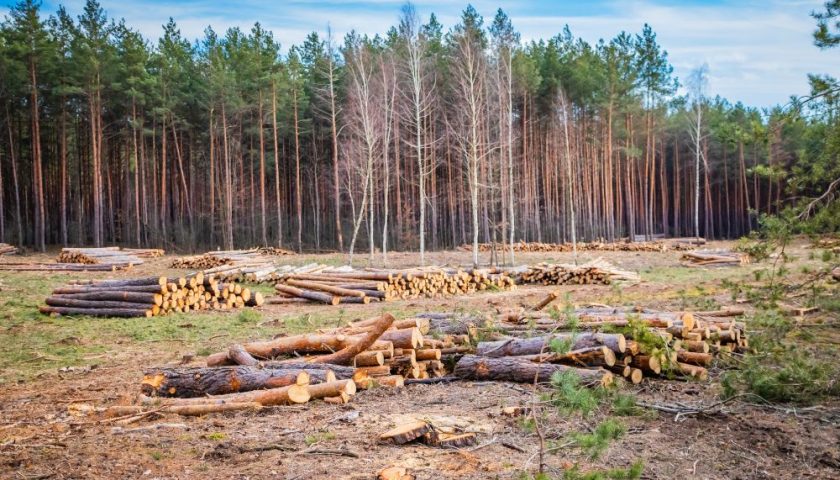For travel lovers hoping to be free and clear of delays, cancellations, reduced services and other issues, particularly when flying or staying at a hotel, travel experts are stressing that travellers need to pack their patience, likely for a few months.
Some airlines, like Air Canada, have reduced their flight schedules to cope with the current demand for travel as the industry tries to get to a more “normal” state, and while these stakeholders have anticipated more normalcy coming in September, David Harris, Executive Chairman of Ensemble Travel Group, thinks a more likely projection would have us looking further away.
“They have indicated that they hope to have things returned by as early as September, I think I’m being more realistic and suggesting it will be at some point this fall,” Harris told Yahoo Canada. “I still think there are still a few more months to go before they’re going to be able to recover on that side.”
“I do think that we’re looking at, more likely, the end of this year,…at some point in the fourth quarter and therefore, let’s call it normalcy, in the beginning of 2023.”
Harris stressed that many of the issues we’re seeing are due to staffing issues impacting an industry essentially shut down by the COVID-19 pandemic.
“It’s a resource challenged environment for travel because the pandemic hit our industry so hard,” Harris said. “People in our industry have left the industry altogether so in many instances, it’s a case of having to find new employees and then of course, depending on what the role is, there can be some significant training requirements, which of course take time.”
“I think from a solution standpoint, really it’s imperative that consumers understand travel is going to be a little different right now, not just flights but even hotels that are also on significantly reduced staff.”
While travellers may get tempted to take their frustrations out on the staff actually present in key customer-facing roles in the travel and tourism industry, Harris highlights that now is the time to “exercise more patience.”
“I think patience is the first word I would use for consumers in this process,” Harris said. “Exercise more patience than they have in the past and until such time as things do meaningfully improve,…just understand that in a lot of cases it’s not the people that you’re getting angry with, it’s just the fact that these modes of travel don’t have the personnel that they require.”
“It’s going to take longer at airports, it’s going to take longer getting into hotels, things are going to take longer.”
How can travellers limit disruptions, issues while travelling?
For travellers who are particularly wary about getting stuck in massive delays, cancelled flight plans or missing out on any bucket-list experiences, Nadine Paulo, director of product with Travel Edge, said this is the time to “pay for comfort”
“Even before you really depart for your trip,…pay for comfort, whether that’s paying for the extra leg space on the airplane, or lounge access ahead of time,” Paulo told Yahoo Canada. “[Purchasing] a flight that is direct from a major gateway with a major carrier tends to be a bit more reliable than booking with some of the smaller carriers or smaller airports, and I think that’s been a consistent trend.”
“You’re creating a higher level of confidence in your trips, a higher level of ownership of your trip and the comfort that you can create for your entire family, but you’re also reducing that stress by taking those steps before you leave.”
Another tip from Paulo for planning a trip is to remember “the devil is in the details,” meaning think beyond just the obvious checkpoints in travel planning, like flights, with some popular destinations filling up fast for hotels and main attractions.
“A lot of travellers will think about the major component of their trip, which is of course the airline, their flights getting there,…but then also the hotels,…I’m thinking of the likes of Italy where there has been such high demand hotel availability is quite tight,” she said. “If you’re going to Paris and you want to go to the Eiffel Tower, try not to leave those types of details over purchasing of tickets, or the arrangement of the tours, or dinner reservations, spa reservations, because there is such high pent up demand.”
“It’s very unlikely that you’ll be able to see some of the major attractions, major sites or have some of the best guides in the industry because they’re looking much, much further in advance. I would say three to six months in advance.”
It’s Travel Week at Yahoo Canada! From travel and luggage essentials to last-minute long-weekend deals, check out all our travel coverage here.
Alternatively, travellers who are hoping to avoid more planning could opt to visit less travelled destinations. Paulo recommends, for example, Azores instead of Lisbon if you’re planning to go to Portugal. If you’re flying and you want to be as flexible as possible during travel, try to take your journey with just a carry-on bag.
“My personal favourite is packing a carry-on,…you have your belongings on you, you don’t have to wait an hour or two sometimes upon arrival in your destination, you can kind of hit the ground running without any worry of lost luggage,” Paulo said.
If travellers are particularly concerned about being able to navigate any possible interruptions in travel plans, there are always travel agents and professional advisors who can assist, particularly with travel rules differing between countries.
“They are even more essential today than they were before the pandemic,” David Harris said. “I believe that it is foolhardy of consumers to not rely upon the assistance of a professional advisor.”
“All of the various hurdles and restrictions and things that are are constantly changing on a global basis with respect to travel requirements, I believe that is something that will continue for quite some time, as different countries respond differently.”





